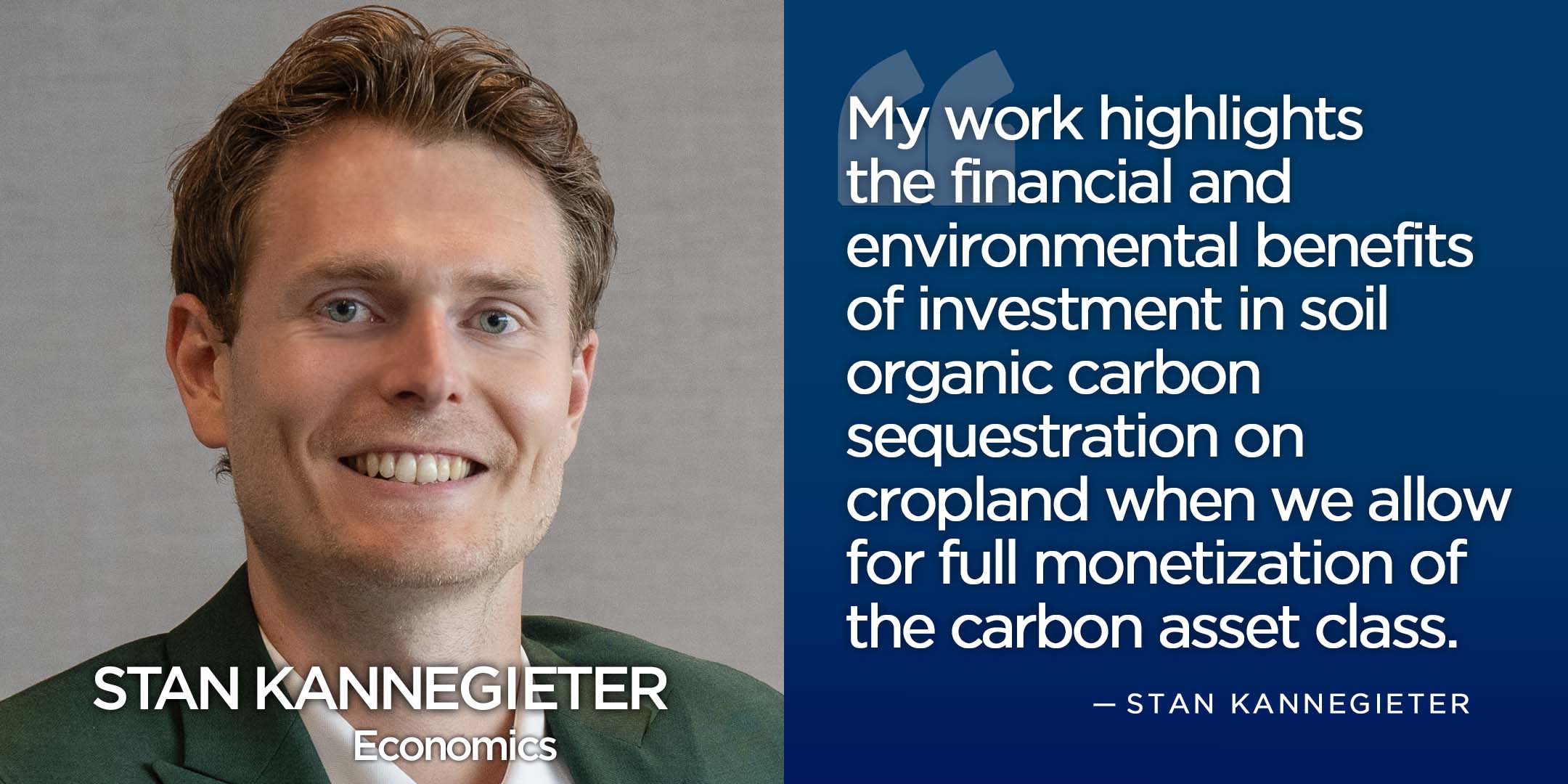 Meet Stan
Meet Stan
Department: Economics
Year in Graduate School: Rising 4th year
Expected Graduation Date and Degree: May 2026 (PhD in Economics)
Hometown: Meteren, Netherlands
Connect: Stan on LinkedIn
What is the overall problem your thesis will help to address?
I analyze the impact of removing the additionality constraint on soil organic carbon sequestration. The dynamic model I developed highlights the financial and environmental benefits of investing in soil organic carbon sequestration on cropland when we allow full monetization of the carbon asset class.
Provide a bit more depth for someone in your field.
I use an optimal control model to analyze a crop farmer's investment behavior. When the additionality constraint is removed, investing in soil organic carbon sequestration offers the farmer a secure and transparent second revenue stream. This encourages them to invest in various land management practices — such as no-tillage, soil amendments, and biochar — that enhance soil organic carbon sequestration. Essentially, the farmer receives a subsidy for the positive externality (carbon sequestration) generated by these practices. Instead of relying on the principle of additionality, soil scientists should define the short and active carbon cycle specific to crop farming, with only carbon in this cycle being eligible for monetization.
What scholarly products have come from your work so far?
I presented this research at the "Energy and the Intersection of Technology, Markets, and Policy" conference at the Baker Institute. I plan to submit the work for publication in Nature, Science, or Environmental Science & Technology Journal later this year. Additionally, I will present it at the United States Association for Energy Economics (USAEE) conference in November.
What do you see as the most pressing sustainability challenge the world is facing?
The most pressing sustainability challenge the world faces today is the affordability and social equity of the green transition. While the necessary technology exists, governments struggle to finance such a large-scale shift and to secure consistent public support. In Dutch, there is a term for this: “draagvlak,” which means a support base. For citizens to provide this support, they need to see and experience the financial benefits of the green transition firsthand.

